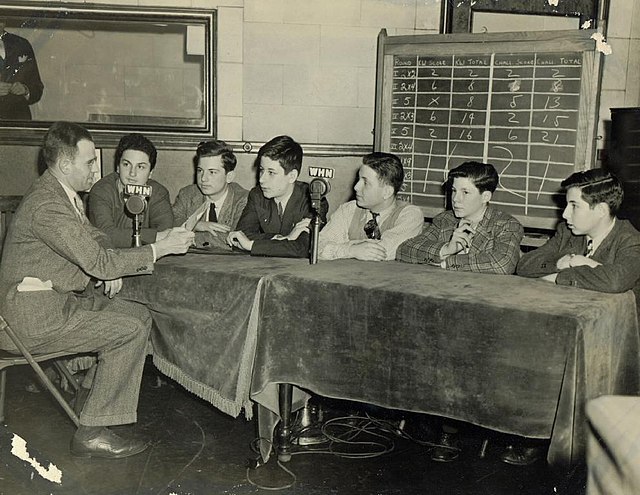The 1950s quiz show scandals were a series of scandals involving the producers and contestants of several popular American television quiz shows. These shows' producers secretly gave assistance to certain contestants in order to prearrange the shows' outcomes while still attempting to deceive the public into believing that these shows were objective and fair competitions. Producers fixed the shows sometimes with the free consent of contestants and out of various motives: improving ratings, greed, and the lack of regulations prohibiting such conspiracy in game show productions.
Host Jack Barry and contestant Charles Van Doren on the set of Twenty-One in 1957. NBC took the show off the air after the scandals made headlines; its production was dramatized in the 1994 film Quiz Show.
A game show is a genre of broadcast viewing entertainment where contestants compete for rewards. The shows are typically directed by a host, who explains the rules of the game as well as commentating and narrating where necessary. The history of the game shows dates back to the late 1930s when both radio and television game shows were broadcast. The genre became popular in the United States in the 1950s, becoming a regular feature of daytime television.
United States Armed Forces participate in Wheel of Fortune with Pat Sajak.
1938 radio quiz show Whiz Kids on WHN Radio in New York
Note For Note, a New Zealand game show from around 1960
Tupla tai kuitti (1958–1988), a Finnish game show with show host Kirsti Rautiainen (left) and competitor Markku Kivekäs (right) in 1965.





